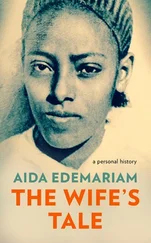Not content with his endeavours to make a fortune, Disraeli planned at the same time to found a daily newspaper with the help of John Powles’s money and John Murray’s publishing expertise. With extraordinary rashness, Disraeli himself undertook to put up a quarter of the necessary capital. Meanwhile, he set out on the four-day journey to Scotland to see Sir Walter Scott and Scott’s shy and crabby son-in-law, John Gibson Lockhart, a journalist who had trained as a lawyer, whom he hoped to persuade to become the proposed newspaper’s editor. It was no wonder that he felt, as he told Robert Messer, ‘acutely dizzy’.
He found both Scott and Lockhart initially wary of committing themselves to the fortunes of a non-existent newspaper; and Disraeli, spending almost three weeks in Scotland – and ‘revelling in the various beauties of a Scotch breakfast of cold grouse and marmalade’ 11– did all he could to persuade them that the editor of this new paper would not be just an editor but the ‘Director General of an Immense Organ and at the head of a band of high-bred gentlemen and important interests’. A seat in Parliament would also surely be found for him.
To give authority and encouragement to Disraeli’s approach, John Murray wrote to Lockhart:
I left my young friend Disraeli to make his own way with you…But as you have received him with so much kindness and favour, I think it right to confirm my good opinion which you appear so early to have formed of him, by communicating to you a little of my own. And I may frankly say that I never met with a young man of greater promise…He is a good scholar, hard student, a deep thinker, of great energy, equal perseverance and indefatigable application, and a complete man of business. His knowledge of human nature…[has] often surprised me in a young man who has hardly passed his twentieth year, and, above all, his mind and heart are as pure as when they were first formed. 12
John Murray’s high opinion of Disraeli was reinforced by the young man’s father:
I know nothing against him but his youth, a fault which a few seasons of experience will infallibly correct; but I have observed that the habits and experience he has acquired as a lawyer often greatly serve him on matters of business. His views are vast, but they are based on good sense and he is most determinedly serious when he sets to work. 13
A more cautious note was sounded by one of Murray’s legal advisers, William Wright, who warned Lockhart that, while Disraeli was ‘a clever young fellow’, his judgement wanted ‘settling down’. ‘He has never had to struggle with a single difficulty,’ Wright continued. ‘Nor has he been called on to act in any affairs in which his mind has been necessarily forced to decide and choose in difficult circumstances. At present his chief exertions as to matters of decision have been with regard to the selection of his food, his enjoyment and his clothing. I take it that he is wiser than his father but he is inexperienced and untried in the world…You cannot prudently trust much to his judgement.’ 14
Wright went on to suggest that ‘whatever our friend D’Israeli [might] say…on this subject’, Lockhart’s acceptance of the editorship of a newspaper ‘would be infra dig , and a losing of caste’. This was ‘not the case in being editor of a Review like the Quarterly [ Review , Murray’s Tory journal]. That was the office of a scholar and a gentleman.’
The longer Disraeli remained in Scotland, the closer he grew to Lockhart. *Scott, however, was less sure about the young man. He described him as a ‘sprig of the rod of Aaron’, ‘a young coxcomb’; and, when Lockhart came down to London to meet Murray, the meeting with the publisher was not a success since Murray was rather drunk – as he not infrequently was in moments of stress.
Eventually, however, it was arranged that Lockhart, who declined the editorship of the proposed new newspaper, should become editor of the Quarterly Review at a handsome salary of £1,000 a year while at the same time contributing articles for an even more generous sum to the newspaper.
Meanwhile, Disraeli occupied himself with the establishment of this paper, writing to proposed correspondents in Britain and abroad, *searching for premises, settling upon a house in Great George Street as suitable offices, employing George Basevi as architect for their conversion, getting himself increasingly involved in matters his experience did not qualify him adequately to deal with, and making outrageously false claims as to the correspondents he had enlisted, including Dr Edward Copleston, Provost of Oriel College, Oxford; then, having suggested a name for the newspaper, The Representative – which made its long-delayed appearance in January 1825 – he had nothing more to do with it. 15
Murray wished heartily that he had not had anything to do with it either. Editor followed editor of a newspaper which was a disaster from the beginning. After six months he had lost over £25,000 and felt compelled to call a halt. Publication ceased, its closure unlamented even by those few readers who had troubled to peruse its tedious pages. 16Murray blamed Disraeli and, in Vivian Grey , Disraeli was later to describe a scene which was, no doubt, based on one which took place at 50 Albemarle Street and in which the character whom Murray took to be based upon himself ‘raved’ and ‘stamped’ and ‘blasphemed’, levelling ‘abuse against his former “monstrous clever” young friend…who was now…an adventurer – a swindler – ayoung scoundrel – a base, deluding, flattering, fawning villain etc. etc. etc.’ 17
Murray was obliged to give up his houses in Whitehall Place and Wimbledon and to move his family into rooms above his office in Albemarle Street, where he received a cross letter from Disraeli’s mother defending her son from suggestions that The Representative had been ruined ‘through his mismanagement’ and ‘bad conduct’. ‘It would not be believed’, she wrote, ‘that the experienced publisher of Albemarle Street could be deceived by the plans of a boy of twenty whom you had known from his cradle and whose resources you must have as well known as his Father, and had you condescended to consult that Father the folly might not have been committed.’ 18
In the financial crash which followed the collapse of The Representative , Disraeli also suffered. He lost the very little money which he possessed and was left so deeply in debt that for years thereafter this increasing indebtedness hung hauntingly over him, and his reputation, such as it was, suffered from attacks like those launched upon him in the pages of the Literary Magnet where he was described as being ‘deposed amidst the scoffs and jeers of the whole Metropolitan Literary World’ after ‘a display of puppyism, ignorance, impudence and mendacity which [had] seldom been exhibited under similar circumstances’.
Unable to pay his debts and reluctant to approach his father for help in settling them, Disraeli now decided to make some money in writing about the circumstances in which they had been incurred.
Disraeli began writing Vivian Grey , his satirical ‘society’ novel, with enthusiasm and energy, letting sheet after completed sheet fall to the floor; and when he had written enough for the book to be judged, he looked for a publisher, the one he knew being no longer approachable. Tremaine, or the Man of Refinement , ‘a novel of fashionable life’, had recently been published anonymously with some success. Its author was Robert Plumer Ward and its publisher the busy, chatty, energetic Henry Colburn.
Plumer Ward’s rather dull and staid solicitor was Benjamin Austen, whose clever, attractive and lively young wife presided over a kind of literary and artistic salon at their house in Guildford Street, near to the D’Israelis’ in Bloomsbury Square. Acting as Ward’s agent, Sara Austen asked Isaac D’Israeli to review Tremaine and, in this way, Benjamin learned of Mrs Austen’s activities.
Читать дальше











